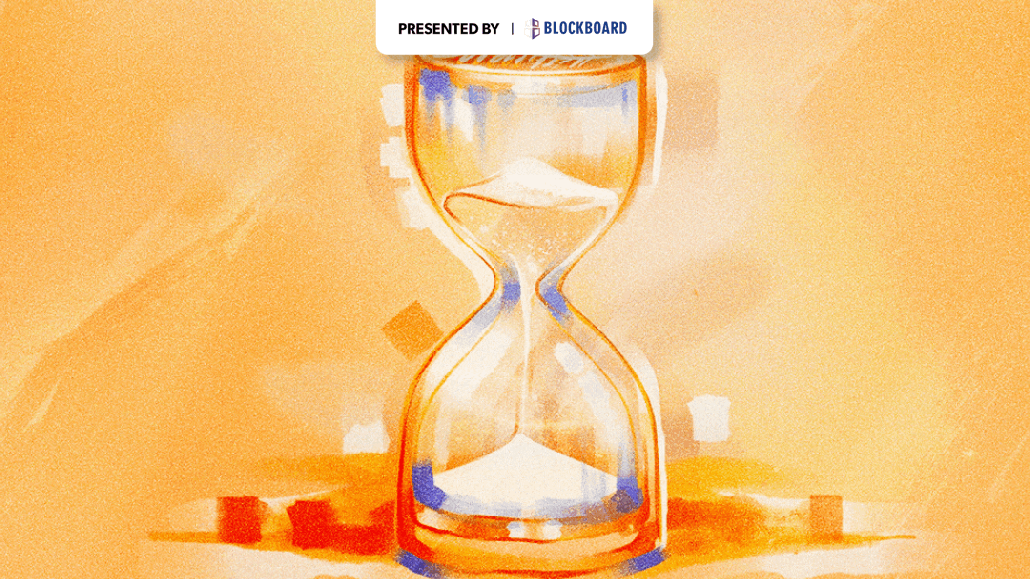Secure your place at the Digiday Media Buying Summit in Nashville, March 2-4

Digiday covers the latest from marketing and media at the annual Cannes Lions International Festival of Creativity. More from the series →
LinkedIn isn’t just for B2B marketing anymore — it’s gaining popularity among B2C marketers too.
Currently B2C advertising drives about 20% of global revenue for the platform, according to LinkedIn’s own stats. Naturally, it wants to increase that share of ad dollars while maintaining its strong B2B focus.
In fact, the platform’s ad team is “already delivering a lot of healthy growth in that part of the business,” said Tom Pepper, senior director of EMEA and LATAM at LinkedIn — though he didn’t share specific figures.
This expansion is part of a larger trend for LinkedIn, where it’s incorporating features from Instagram, TikTok and even YouTube. As it evolves, it’s becoming a viable alternative for ad spending on those platforms, with new formats like a vertical video feed currently in testing and expected to officially roll out soon, along with creator and user-generated content.
“These [other] platforms are heavily used by B2C companies and now we’re seeing them migrate to LinkedIn to promote their products and services in a new, more casual, engaging environment,” said Lindsey Gamble, associate director of influencer innovation at Later who noted a huge benefit of the app is the fact that it isn’t as oversaturated as other social networks, which provides a real opportunity for B2C marketers to stand out.
And this interest is even present at Cannes Lions this year. Even though the platform’s activation at the advertising conference is all about LinkedIn being “The place to B2B,” Pepper noted that around 30% of the meetings he’s having in Cannes this week are with B2C firms, including luxury brands.
“A lot of the activity we see is high consideration B2C activity,” said Pepper, noting that, while B2C has existed on LinkedIn for a number of years, his team is seeing a growing trend in luxury brands using the platform.
“Brands like Chanel and Richmont have partnerships with us and come to LinkedIn because they see the performance in the channel, particularly in the branding space,” he said. “There’s a growing confidence in the creativity available on LinkedIn, and our own research identified that 72% of marketers felt there is a real boldness to the creativity here.”
This confidence stems partly from LinkedIn’s diverse audience, which spans across nearly every industry. Customers aren’t just consumers — they’re professionals. It’s likely that within this audience segment, marketers can find and guide them to the next step in their journey.
“LinkedIn’s algorithms are a lot more personalized now, increasing the chances for organic content from consumer brands to reach relevant people,” Gamble added. “As LinkedIn works more on an interest-based graph, B2C companies can put out content that is likely going to reach the right people based on what they are posting about themselves and reading from others.”
This is indicative of where social media is heading more generally — toward an experience that’s more about watching content based on individual interests. A key difference for LinkedIn, however, is the fact that it would argue that its platform is inherently safer for advertising than other platforms due to its core existence as a professional networking app — users sign up using their real identities along with their job titles and the companies they work for.
“There’s a self-policing that goes on on LinkedIn, that doesn’t necessarily go on on other platforms, because people know that their bosses or potential employers are also on LinkedIn,” said Jasmine Enberg, principal analyst, social media, at eMarketer. “And so they’re more careful about what they post and how they engage with others on the platform.”
This means it’s a lot easier for LinkedIn to convince B2C brands that the platform is valuable to them and that people on it will be receptive to their messages, Gamble said.
More in Marketing

Future of Marketing Briefing: AI’s branding problem is why marketers keep it off the label
The reputational downside is clearer than the branding upside, which makes discretion the safer strategy.

While holdcos build ‘death stars of content,’ indie creative agencies take alternative routes
Indie agencies and the holding company sector were once bound together. The Super Bowl and WPP’s latest remodeling plans show they’re heading in different directions.

How Boll & Branch leverages AI for operational and creative tasks
Boll & Branch first and foremost uses AI to manage workflows across teams.








